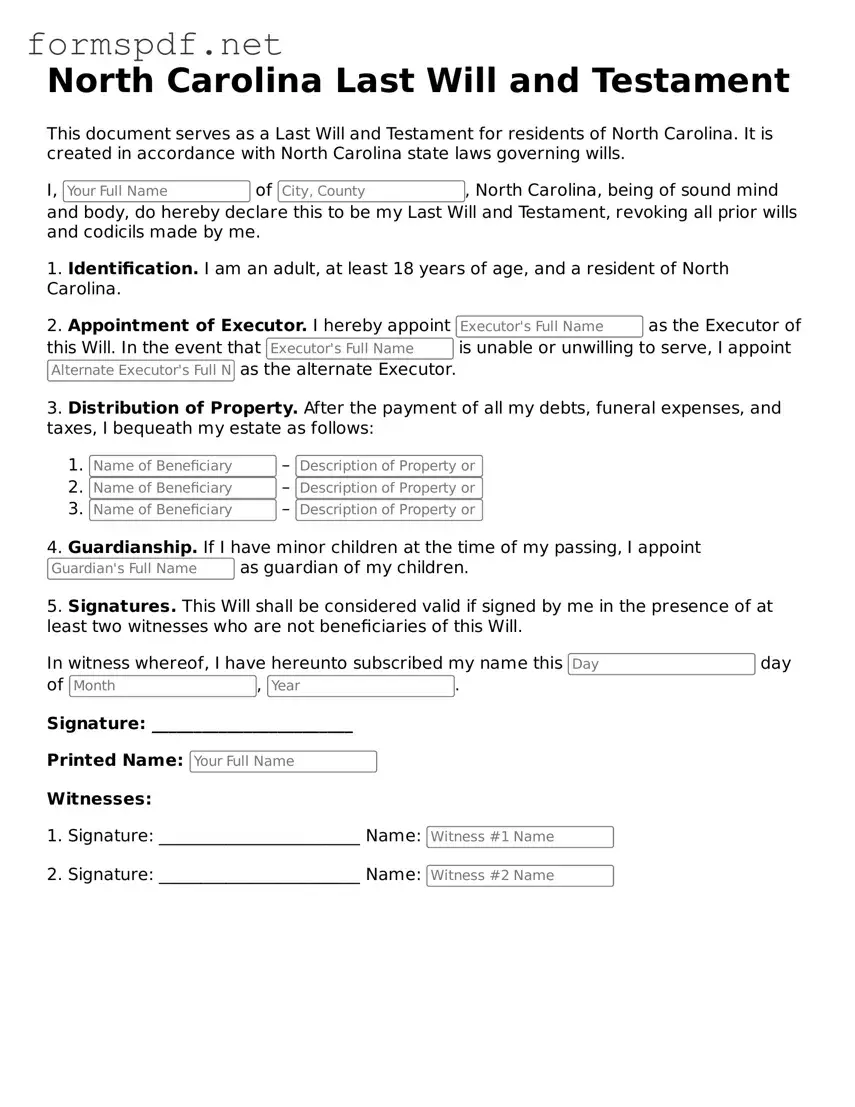Free Last Will and Testament Form for North Carolina
The North Carolina Last Will and Testament form is a legal document that allows individuals to outline their wishes regarding the distribution of their assets after death. This form serves as a crucial tool for ensuring that one's estate is managed according to personal preferences. Understanding its components is essential for anyone looking to secure their legacy effectively.
To begin the process of creating your will, click the button below to fill out the form.
Launch Editor Now

Free Last Will and Testament Form for North Carolina
Launch Editor Now

Launch Editor Now
or
⇓ Last Will and Testament PDF
Don’t leave without finishing the form
Finish your Last Will and Testament online and download the final version.